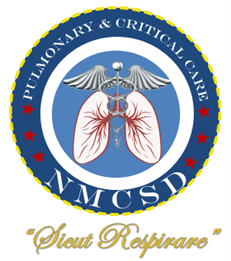- Rotation Director:Hyong (Nick) Kim, M.D.
- Rotation Location: UCSD Sulpizio Cardiovascular Center
- Rotation Duration: One 4-week block
- Trainees/month: One
Educational Purpose and Rotation Description:
The UCSD Pulmonary Vascular Service rotation will allow the pulmonary/critical care fellow to gain expertise in all aspects of pulmonary vascular disease. The fellow, working directly with the Pulmonary Vascular attending staff, will be responsible for the evaluation of patients referred with a broad range of pulmonary vascular disorders. This includes the pre-operative and post-operative care of patients with chronic pulmonary hypertension undergoing pulmonary thromboendarterectomy, daily rounds on patients hospitalized for pulmonary hypertension, and participation in right heart catheterization and vasodilator trials.
Rotation Objectives:
- Acquire knowledge of and gain clinical experience in the following clinical areas:
- Pulmonary vascular disease, including primary and secondary pulmonary hypertension and the vasculitis and pulmonary hemorrhage syndromes
- Normal pulmonary hemodynamics
- Diseases causing pulmonary hypertension
- Diagnostic evaluation for pulmonary vascular diseases
- Current treatments for pulmonary vascular disease
- Diffuse interstitial lung disease
- Iatrogenic respiratory disease, including drug-induced disease
- Acute lung injury, including radiation, inhalation, and trauma
- Pulmonary manifestations of systemic disease, including collagen vascular diseases that are primary in other organs
- Respiratory failure, including the adult respiratory distress syndrome, acute and chronic respiratory failure in obstructive lung diseases, and neuromuscular respiratory drive disorders
- Electrolyte and acid-base physiology, pathophysiology, diagnosis, and therapy
- Electrolyte, nutritional, and endocrine effects of critical illnesses
- Hematologic and coagulation disorders secondary to critical illness
- Pharmacokinetics, pharmacodyanmics, and drug metabolism and excretion in critical illness
- Acquire knowledge (indications, contraindications, complications, and limitations) of and competence in performing the following procedures:
- Right heart catheterization and vasodilator studies
- Maintenance of circulation
- Arterial puncture and blood sampling
- Insertion of central venous, arterial, and pulmonary artery balloon flotation catheters
- Basic and advanced cardiopulmonary resuscitation
- Cardioversion
- Diagnostic and therapeutic procedures, including thoracentesis, pleural biopsy, flexible fiberoptic bronchoscopy, and related procedures
- Pressure-cycled, volume cycled, time-cycled and flow-cycled mechanical ventilation
- Thoracostomy tube insertion and drainage
- Parenteral nutrition
- Monitoring/bioengineering
- utilization, zeroing, and calibration of transducers
- use of amplifiers and recorders
- Acquire knowledge of and ability to interpret the following diagnostic studies and data pertaining to:
- Imaging procedures, including
- Chest roentgenograms
- Computed axial tomograms
- Radionuclide scans
- Pulmonary angiograms
- Calculation of oxygen content, intrapulmonary shunt, and alveolar arterial gradients
- Pharmacokinetics
- Cardiac output determinations by the thermodilution and/or other techniques
- Evaluation of oliguria
- Management of massive transfusions
- Management of hemostatic defects
- Interpretation of antibiotic levels and sensitivities
- Monitoring and assessment of metabolism and nutrition
- Gain additional knowledge, skills, attitudes and educational experience in the core competency areas of patient care, medical knowledge, practice based-learning, interpersonal and communication skills, professionalism, and systems based practice by doing the following:
- Participating actively in multidisciplinary conferences
- Communicating with families by phone, in person, and through family conferences when appropriate
- Discussing end of life care issues, pain management, and advanced care directives with patients and their families when appropriate
- Communicating effectively with consultants from other services to ensure the optimal care of patients for whom the fellow is responsible
- Requesting post-mortem examination permission from families in a sensitive and empathetic manner
- Avoiding discussion of patients in public areas
- Obtaining informed consent for all invasive procedures
- Learning accepted criteria for brain death and how to explain this concept to family members and friends
- Utilizing the internet and computer search strategies to obtain the latest diagnostic and treatment recommendations for patients
- Ensuring adequate sedation/pain control for all procedures and treatments where physical or emotional stress is anticipated
- Keeping the attending physician informed of significant changes in patient status and recognizing potentially serious findings or trends
- Communicating patient orders to nurses, therapists, and other personnel in a professional manner and according to hospital guidelines
- Learns and applies hospital and national regulations regarding patient privacy (HIPAA)
- Learning and applying hospital and national clinical guidelines/pathways for ICU care
- Looking for and identifying socioeconomic and language barriers to medical care
- Keeping abreast of current literature which includes active participation in journal clubs
Learning Venues and Teaching Methods:
Conferences (refer to schedule)
Direct Patient Care:
- UCSD Sulpizio Cardiovascular Center
- NMCSD Pulmonary Clinic
Suggested Reading Material:
- Pulmonary Hypertension, Clinics in Chest Medicine, September 2001
- Chronic Thromboembolic Pulmonary Hypertension, NEJM 2001;345:1465-1472
- Review articles provided by staff
Evaluation:
The trainee will receive a written evaluation at the end of their rotation based on cognitive, patient management, procedural and humanistic skills. This evaluation, including areas for improvement, will be discussed personally with the trainee at the end of the rotation and then forwarded to the Program Director for inclusion in the trainee’s permanent file.
